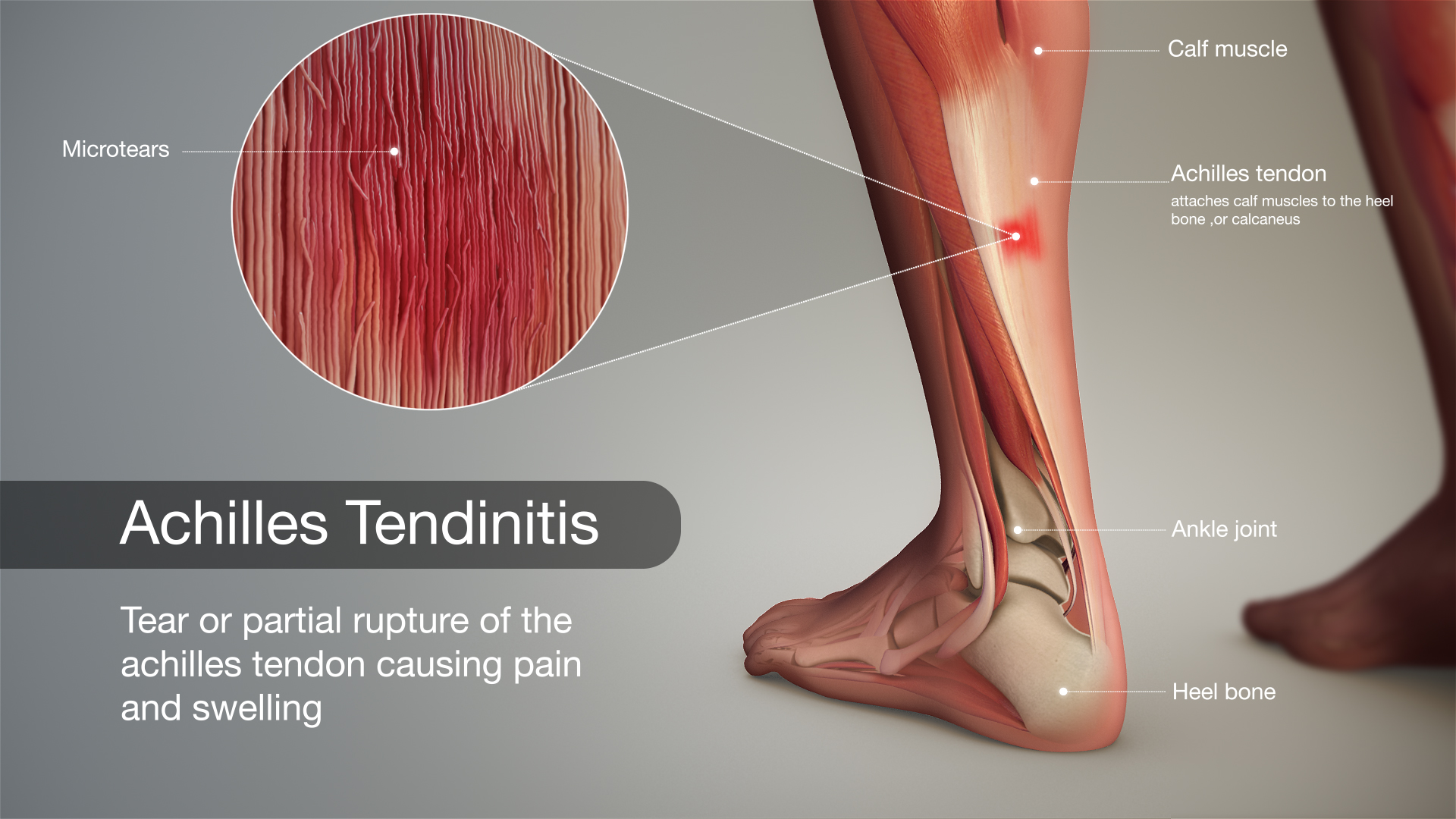The human body’s largest tendon is the Achilles Tendon. It stretches from the calf muscles until the bone of the heel. When this tendon gets injured, it is called an Achilles Tendon Rupture. When the Achilles tendon ruptures, a pop sound is immediately heard and there is very intense pain in the lower leg. Achilles tendon rupture is a common injury and mostly affects people who play sports or do things in which they are required to quickly speed up, slow down or pivot such as running, dancing, football, gymnastics, basketball, softball, volleyball, etc. It could also happen to anyone. Men above the age of 30 years are more likely to have an Achilles tendon rupture.
Symptoms
Some people experience no signs when the Achilles tendon ruptures but in most cases, the signs and symptoms are:
- Mild to severe pain and swelling near the heel
- A snapping sound in case of injury
- Inability to stand on the toes of the injured foot
- Unable to bend the foot downward or put weight on the injured leg while walking
Causes
Achilles tendon ruptures are usually caused when there is a sudden increase of stress on the Achilles tendon. This usually happens when there is an increase in the intensity of sports participation, stepping into hole unknowingly, and falling from a height. Certain factors increase the risk of this tendon rupture. Some of these are:
- Age: Achilles tendon rupture usually affects people between the age of 30 to 40 years
- People who play recreational sports
- Sex: Men are five times more prone than women
- Obesity: excess weight puts more stress on the Achilles tendon
- Steroids
Treatment
Treatment of Achilles tendon rupture depends on the age of the person and severity of the injury. Mild to moderate injuries usually do not require surgery and heal on their own. Non-surgical treatments require:
- Resting the tendons completely by using crutches
- Applying ice packs at regular intervals
- Pain medications and anti-inflammatory medicines
- Practicing stretching and strengthening exercises
- Using a heel lift
For more severe injuries, surgery may be required. Generally after both surgical and nonsurgical treatments, physical therapy is required.
Such tendon rupture is an injury that can be prevented by regular stretching and strengthening exercises, varying the exercise routine and balancing and alternating high impact sports with low impact sports, avoiding running on hard surfaces, and gradually increasing the intensity of the training.
Disclaimer: The information in no way constitutes, or should be construed as medical advice. Nor is the above article an endorsement of any research findings discussed in the article an endorsement for any of the source publications.









